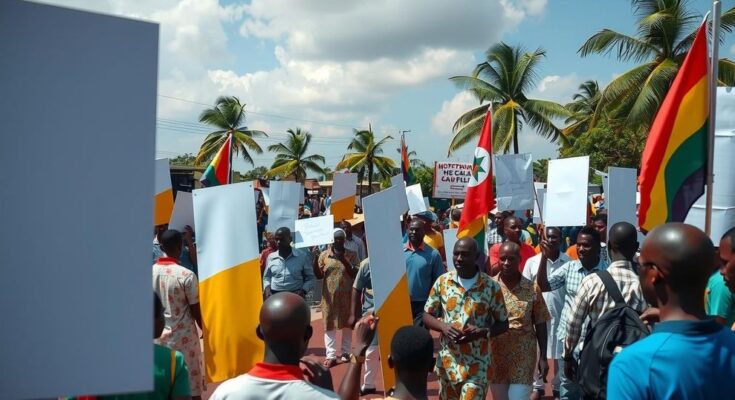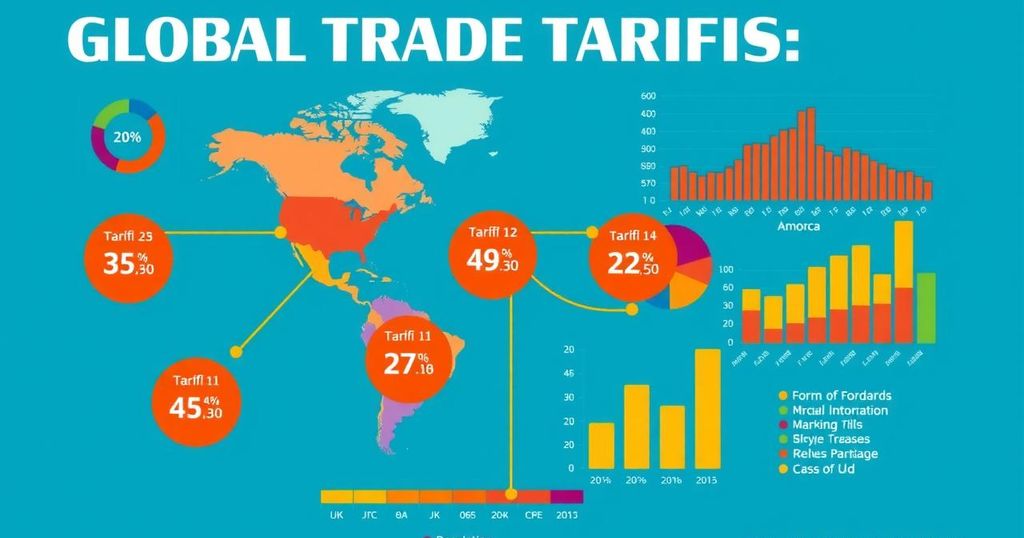President Umaro Sissoco Embalo of Guinea Bissau has postponed legislative elections set for November 24 indefinitely, continuing the political uncertainty in the country. Financial and logistical challenges were cited as reasons for the delay, with no new election date provided. The situation is compounded by a tense political atmosphere, as a coalition opposing Embalo holds a parliamentary majority, further complicating efforts to restore stability.
On Monday, President Umaro Sissoco Embalo of Guinea Bissau officially announced the indefinite postponement of the legislative elections that were initially scheduled for November 24. This decision further extends the political uncertainty that has beset the small West African nation. Following the dissolution of parliament in December 2023, triggered by an attempted coup, Embalo had previously set the election date, but various challenges have now prompted the delay. The Minister for Territorial Administration, Aristides Ocante da Silva, indicated that logistical and financial obstacles made proceeding with the elections highly unlikely. As such, President Embalo confirmed on Saturday that he would formalize the postponement this week. Subsequently, on Monday, the decree setting the election date was rescinded, although no new date has been established. The political landscape remains murky, with uncertainties also looming over the presidential elections meant to replace Embalo. A coalition led by the African Party for the Independence of Guinea and Cape Verde (PAIGC), which has consistently opposed the president, maintains a parliamentary majority since the June 2023 elections. This has resulted in a tense political atmosphere, complicating the feasibility of conducting new elections amid ongoing instability. Guinea Bissau has long grappled with political issues since gaining independence from Portugal, frequently marked by corruption and military coups. Despite some progress toward restoring constitutional governance in the last decade, the nation continues to face significant political turmoil, with concerns regarding the funding and organization of elections exacerbating the situation for its impoverished population.
Guinea Bissau, a country notorious for its political instability, has been stuck in a cycle of coups and government dysfunction since its independence from Portugal. The current political climate worsened following the dissolution of parliament in December 2023 in response to violence deemed an attempted coup. With the country being one of the poorest in the world, challenges in organizing elections have intensified amid ongoing financial constraints and a lack of logistical support, complicating the democratic processes anticipated by the populace and the international community.
In summary, President Umaro Sissoco Embalo’s decision to indefinitely postpone the legislative elections reflects the ongoing political challenges faced by Guinea Bissau. The country’s history of instability, combined with current financial and logistical difficulties, has created an environment where the prospects for democratic governance remain uncertain. Until new election dates are established, political tension is likely to persist, further complicating the governance landscape.
Original Source: punchng.com




